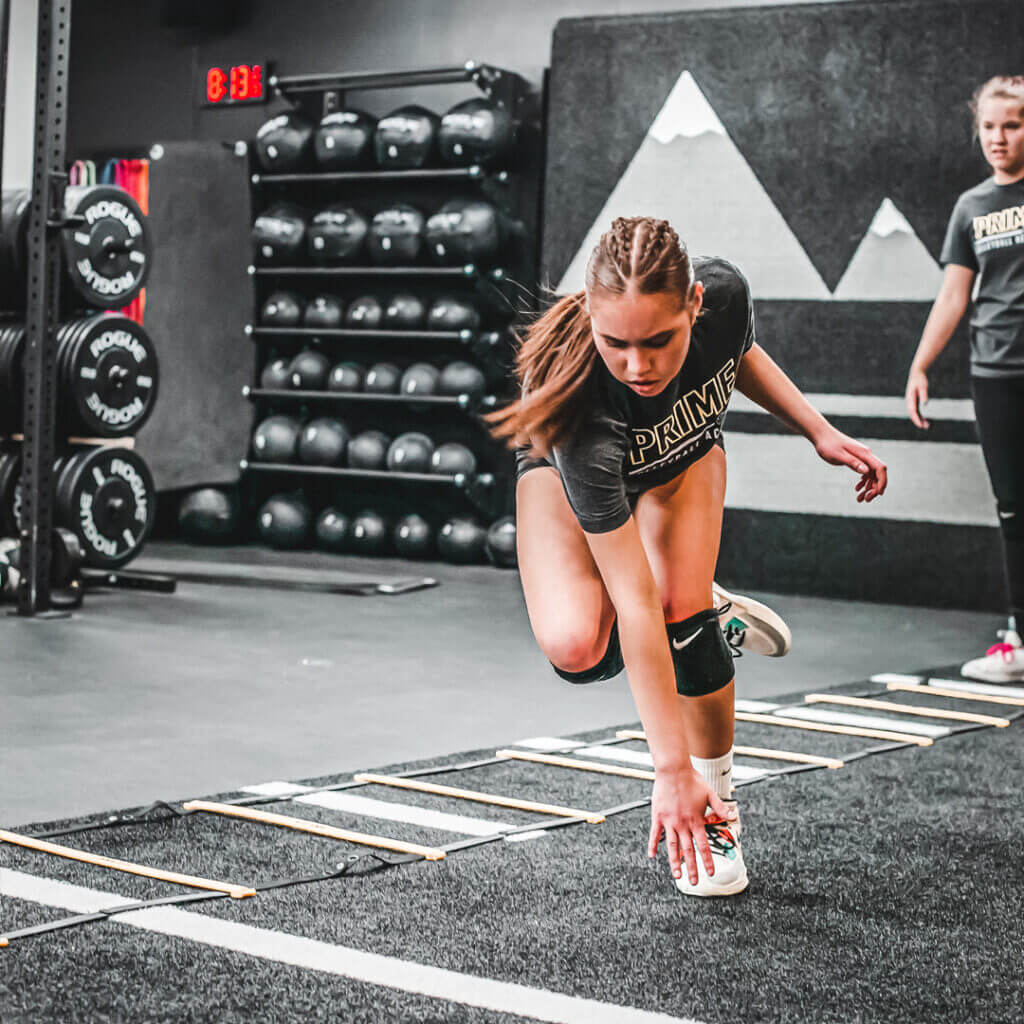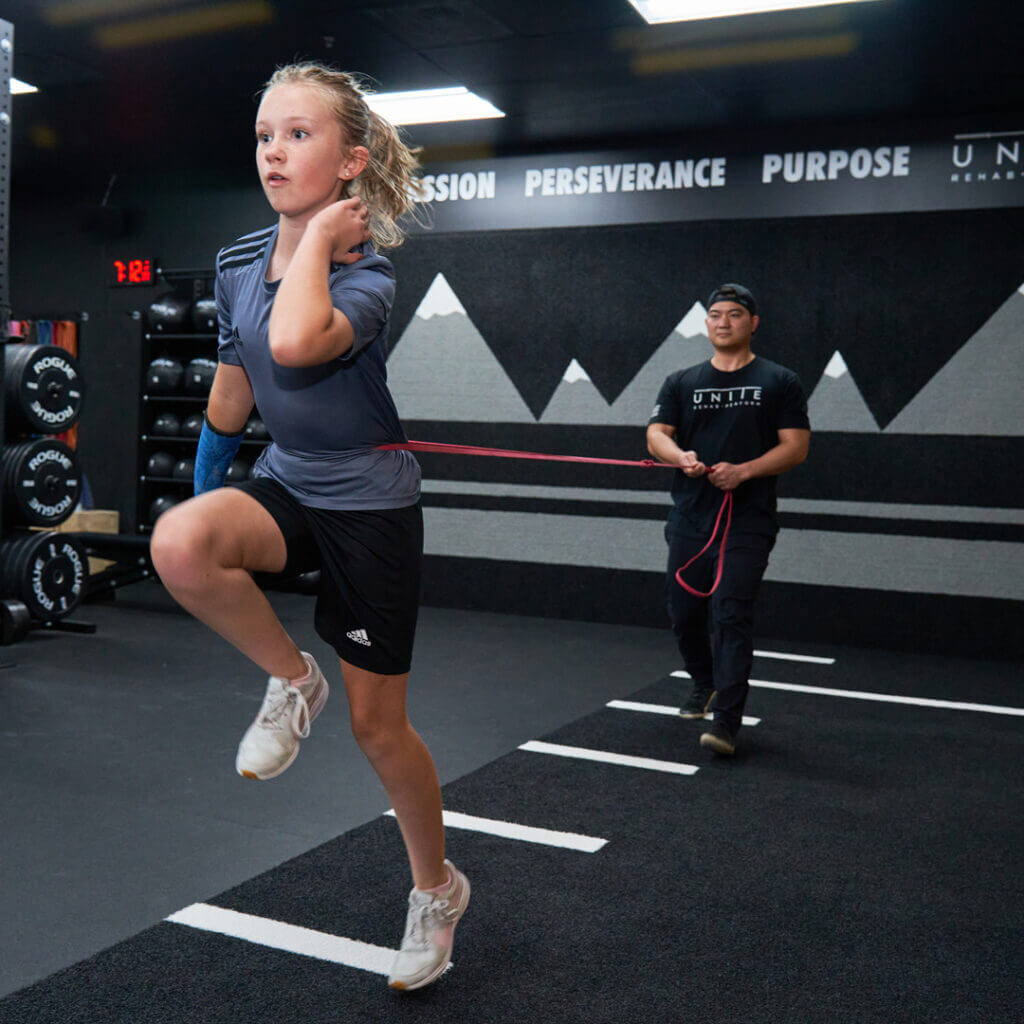
UNITE.rehab.perform
Denver's Best Sports Physical Therapy
Strength & Power Training For Youth Athletes

The training of young athletes has been a controversial topic and is fraught with misconceptions and misunderstandings. In the past, children were discouraged from participating in strength training routines for fear of injury, prematurely halting the growth process and concerns regarding the efficacy of a training effect resulting from weight training. Some of these concerns were not without warrant.
Programs that were used by professional athletes and made available to the general public were used to train physically immature athletes. The results of these programs on the health of the participants was questionable at best. Children are not small adults and should not be trained that way. They have distinct physiological variables that need to be considered when developing training programs. Nationally recognized professional groups such as the National Strength and Conditioning Association (NSCA), American Academy of Pediatrics, the American College of Sports Medicine, the American Orthopaedic Society for Sports Medicine have concluded that supervised strength training programs that follow the recommended guidelines and precautions are safe and effective for children.
According the the NSCA, a properly designed program will:
- – Provide qualified instruction and supervision
- – Ensure the exercise environment is safe and free of hazards
- – Start each training session with a 5- to 10-minute dynamic warm-up period
- – Begin with relatively light loads and always focus on the correct exercise technique
- – Perform 1–3 sets of 6–15 repetitions on a variety of upper- and lower-body strength exercises
- – Include specific exercises that strengthen the abdominal and lower back region
- – Focus on symmetrical muscular development and appropriate muscle balance around joints
- – Perform 1–3 sets of 3–6 repetitions on a variety of upper- and lower-body power exercises
- – Sensibly progress the training program depending on needs, goals, and abilities
- – Increase the resistance gradually (5–10%) as strength improves
- – Cool-down with less intense calisthenics and static stretching
- – Listen to individual needs and concerns throughout each session
- – Begin resistance training 2–3 times per week on nonconsecutive days
- – Use individualized workout logs to monitor progress
- – Keep the program fresh and challenging by systematically varying the training program
- – Optimize performance and recovery with healthy nutrition, proper hydration, and adequate sleep
- – Support and encouragement from instructors and parents will help maintain interest
Specific considerations include:
- – Develop tendon and ligament strength before focusing on muscular strength
- – Develop core strength before limb strength
- – Develop joint stability and mobility before limb strength
Strength training against loaded implements can safely begin around the age of pubescence. Training can be done 2 times per week initially and then expanded to 3 days per week on non consecutive days. Research on strength gains in children reveals that a properly designed training program will yield gains in strength in prepubescence, pubescence and post pubescence. Gains in strength during the pre and pubescent stages of growth are typically related to improvements in the nervous systems ability to coordinate the movements. Post pubescent children will experience gains in muscle mass, although female athletes typically will not experience this to the same extent as their male counterparts. This is primarily the result of hormonal factors and their influence on muscular growth. Males have 10x the amount of the muscle growing hormone testosterone as females once they enter puberty.
Specific work on abdominal strength and shoulder stability as well as hip and knee stability should be a part of every training session as these areas are often neglected in training. Loads over 70-80% of capacity should not be used with developmental athletes. Gains in strength can be acquired safely with loads less than 70% in children. Proper form and technical mastery should be the objective vs gains in strength. Since children tend to have shorter attention spans than their older counterparts, training should reflect this reality. Keeping the working sets short and varying the exercises used will lead to better performance in the long run.

©2020-2025 UNITE.rehab.perform LLC. All rights reserved.
UNITE.rehab.perform does not provide medical advice, diagnosis, or treatment through this website or related content. See additional information.